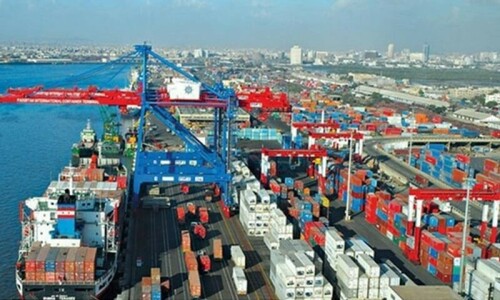MODARABA companies cater to those segments of financial service seekers who are under-served by banks and other financial institutions.That determines their performance and sets the specific nature of their problems like liquidity shortage and risk management.
The combined profit-after-tax of all the 25 modarabas totalled Rs1.344bn in FY15, just a shade below Rs1.395bn recorded a year earlier and far lower than Rs2bn earned in FY13.
“But this is more due to the fact that the modaraba sector is repositioning itself in a fast-changing financial market and investing in human resources and fintech, taking a slight hit on profitability in the short-term,” says a senior official of Allied Rental Modaraba.
“Besides, declining returns on the government securities including Sukuk has also affected profitability of modarabas in FY15 as well as in this fiscal year,” he added.
Six modaraba companies — Allied Rental, First Habib, First Treet Manufacturing, First UDL and Standard Chartered — account for the bulk of modaraba business. However, in the last two fiscal years, some smaller modaraba companies like First Punjab, First Imroz and First B.F. have also made efforts to extend their business outreach.
Industry sources say the restructuring of the sector should help modarabas embrace the changes in product diversification, human resource development and investment
in fintech
Managers of modaraba companies say till FY13, they used to rely heavily on Ijarah and the government securities for profit earning but since then they have diversified their businesses. “Now, syndicate modaraba and syndicate musharaka are gaining currency and some of the top-tier modaraba companies are using these vehicles of Islamic finance to do business,” says a senior executive of First Habib Modaraba.
However, offering rental and Islamic leasing services and catering to small-scale manufacturing, trading including financing retail and wholesale businesses and investing in government securities still make up the core business of modarabas, according to a SBP report.
But through syndicate modaraba and syndicate musharaka, modaraba companies are trying to reach out to those small and medium-sized trading and manufacturing firms, particularly in food, pharmaceutical, transport and construction sectors that are expanding their businesses, industry sources say.
Managers of modaraba companies see growth in business after switching over of the insurance of their assets from the conventional to Takaful in the last fiscal year. Now, as modaraba companies provide Shariah-compliant insurance cover to the assets financed by them they hope that this will bring them more business.
“One area where modaraba companies need to work hard is identifying the business segments where they can provide tailor-made financing to the entire chain of business opportunities that are going to open up with the historic $46bn China-Pakistan Economic Corridor,” says a former chairman of NBFIs and Modaraba Association of Pakistan (MAP). How well modarabas find a role for themselves is going to make a big difference,” he adds, suggesting that modarabas should join hands with Islamic banks to get increased share of financial business in future.
According to the amended rules of business proposed by the Securities and Exchange Commission of Pakistan (SECP) in March this year, modarabas will be categorised as those that can raise deposits and those that cannot. This will enable eligible modarabas to undertake larger financing operations.
The draft rules also seek to bring in more transparency in modarabas’ working by empowering the holders of certificates of investment issued by them to convene annual and extraordinary general meetings.
Industry sources say the restructuring of the sector should help modarabas embrace the changes in product diversification, human resource development and investment in fintech.
They, however, point out that in liquidity and risk management issues, the modarabas need the support of the State Bank of Pakistan serving as the lender of the last resort. For this purpose, the NBFIs and MAP are working with the central bank and the SECP.
Published in Dawn, Business & Finance weekly, March 23rd, 2016














































Dear visitor, the comments section is undergoing an overhaul and will return soon.